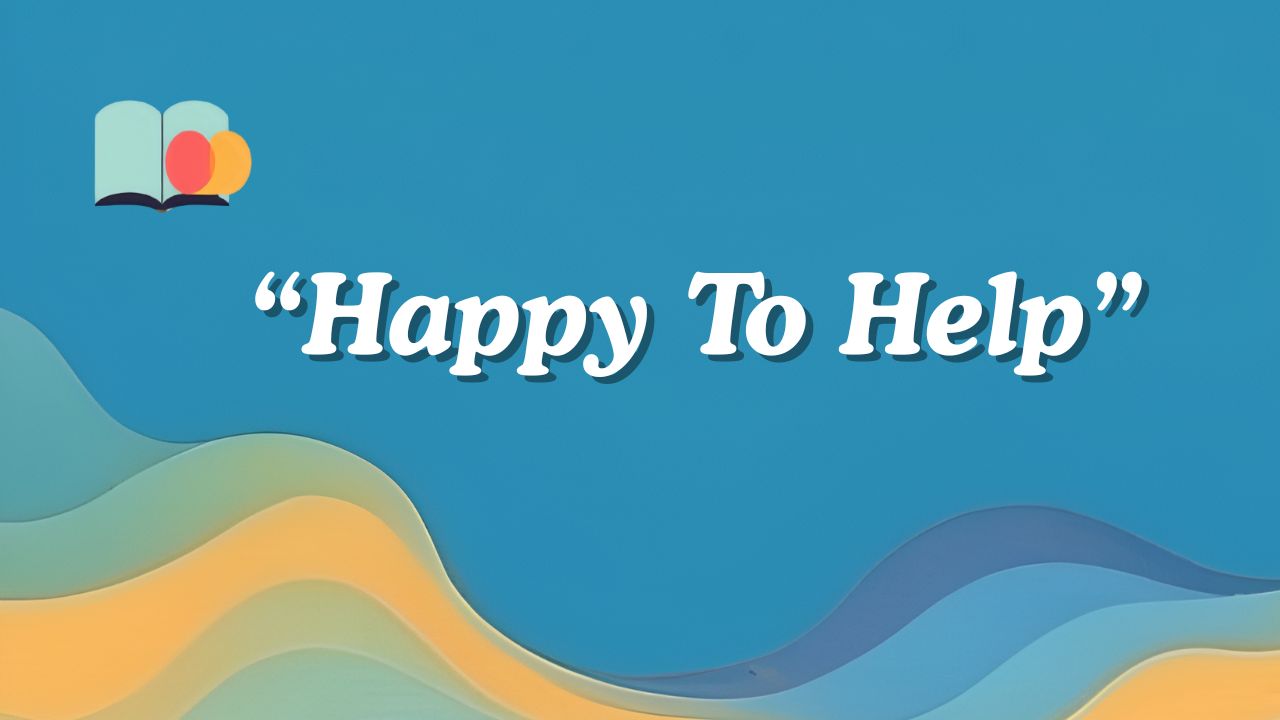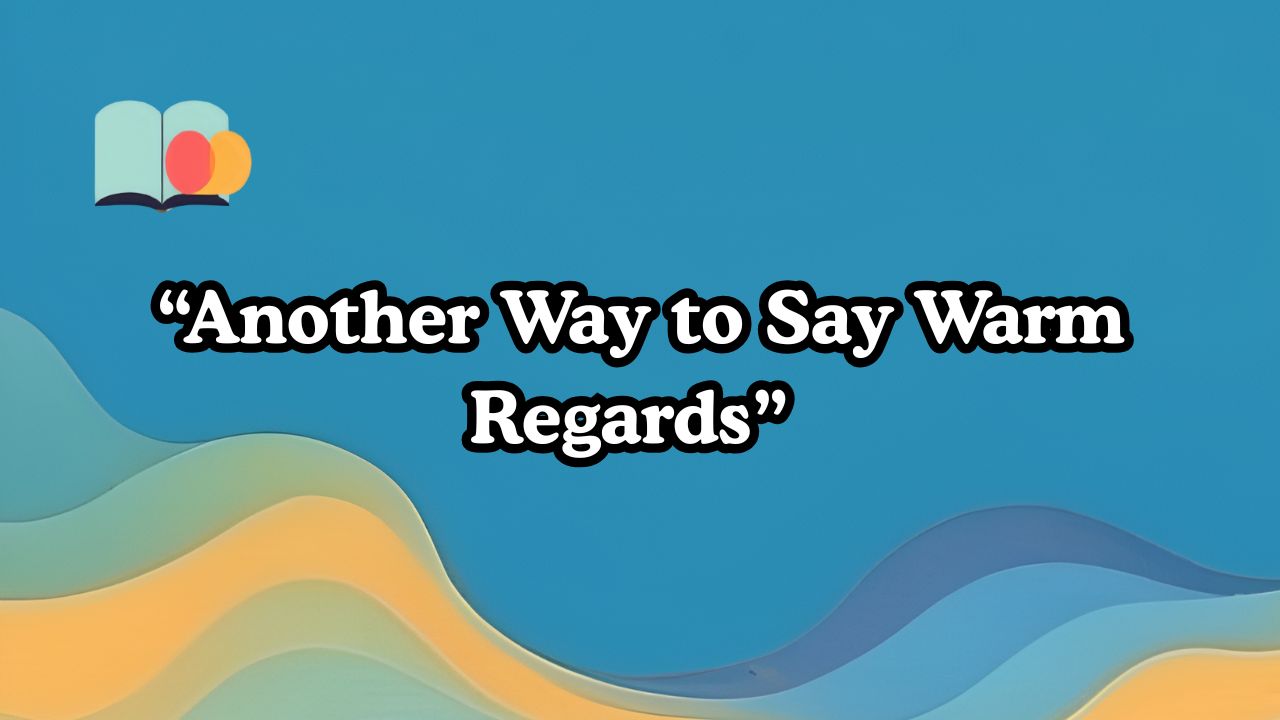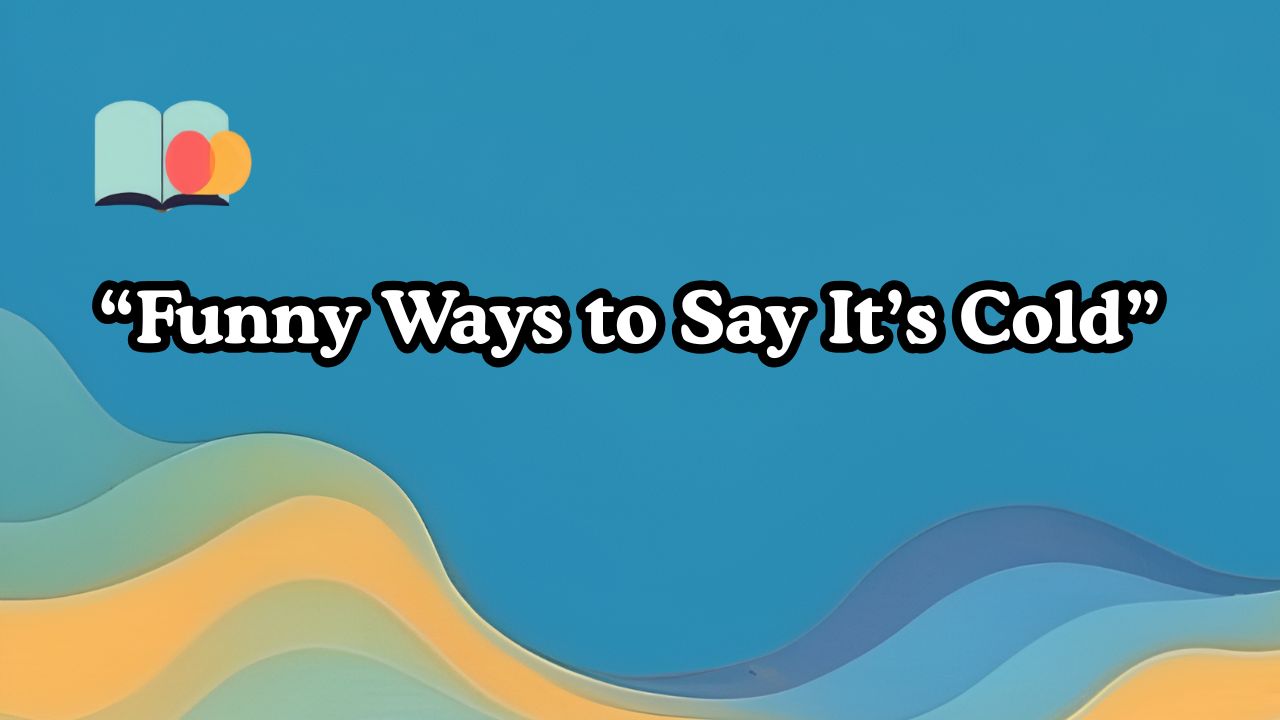Imagine you’re at work, finishing an email to a colleague who needs your advice. You want to end it on a positive note, showing support without being too formal. That’s why finding other ways to say “happy to help” is useful. The phrase “happy to help” is polite but switching it up can make your message more engaging.
Using synonyms keeps things interesting and shows your personality. They’re great for customer service, talking with friends, or writing formal letters. Creative alternatives can make your communication stand out.
Why use synonyms? They add variety, match the situation’s tone, and can make you memorable. In today’s fast-paced world, a unique phrase can help build stronger connections. Here are a few quick options to say “happy to help” differently:
- Glad to assist – Great for professional settings.
- No problem at all – Casual and reassuring.
- At your service – Adds a touch of formality with flair.
- Eager to lend a hand – Shows enthusiasm casually.
In this guide, we’ll explore dozens of alternatives, grouped by tone. We’ll provide example sentences and tips for using them. Let’s see how these phrases can brighten your daily interactions!
Professional Alternatives to “Happy to Help”
In business emails, meetings, or client calls, you need phrases that sound polished and reliable. These professional ways to say “happy to help” keep a formal tone while showing you’re willing to help. Aim for 1-1.5% keyword density by naturally incorporating terms like “alternative phrases for happy to help.
Here are 10 solid options:
- Glad to assist [Professional]: “If you have any questions about the report, I’m glad to assist.”
- Pleased to be of service [Formal]: “We’re pleased to be of service with your account setup.”
- Delighted to support you [Business]: “I’m delighted to support you through this process.”
- Ready to provide guidance [Corporate]: “Our team is ready to provide guidance on the next steps.”
- Eager to offer my expertise [Expert]: “Feel free to reach out—I’m eager to offer my expertise.”
- Happy to oblige [Polite]: “Regarding your request, I’m happy to oblige with the details.”
- At your disposal [Service-Oriented]: “My schedule is at your disposal for any follow-up.”
- Willing to lend assistance [Helpful]: “If needed, I’m willing to lend assistance on the project.”
- Thrilled to contribute [Enthuastic]: “I’m thrilled to contribute to your success here.”
- Prepared to help out [Reliable]: “We’re prepared to help out with any technical issues.”
These phrases are perfect for resumes, LinkedIn messages, or customer support chats. They make your language more engaging without being too much, showing you’re both approachable and competent.
💡 Expert Tip: In professional contexts, pair these with specifics like “I’m glad to assist with the budget analysis” to show proactivity and boost engagement.
Casual and Friendly Ways to Say “Happy to Help”
For chats with friends, family, or coworkers you know well, keep it light and warm. These casual expressions are like synonyms for “happy to help” but with a relaxed twist. Think of them as “friendly phrases” or “informal alternatives.”
Try these 12 laid-back options:
- No worries, I’ve got you [Casual]: “Need a ride to the airport? No worries, I’ve got you.”
- Sure thing, let’s do it [Friendly]: “If you want tips on that recipe, sure thing, let’s do it.”
- Happy to pitch in [Informal]: “Planning the party? I’m happy to pitch in with decorations.”
- Count me in for support [Relaxed]: “Struggling with the puzzle? Count me in for support.”
- Glad to lend a hand [Everyday]: “Moving furniture? I’m glad to lend a hand this weekend.”
- Anytime, just say the word [Easygoing]: “Questions about the game? Anytime, just say the word.”
- I’m here for you [Supportive]: “Feeling overwhelmed? I’m here for you with whatever you need.”
- No problemo [Playful Slang]: “Forgot your charger? No problemo, borrow mine.”
- Ready and willing [Light-Hearted]: “Want company on your walk? I’m ready and willing.”
- Let’s make it happen [Enthuastic]: “Ideas for the trip? Let’s make it happen—I’m on board.”
- Buzz me if you need me [Modern]: “Working on that app? Buzz me if you need me.”
- All good, happy to jump in [Chill]: “Team project lagging? All good, happy to jump in.”
These phrases are perfect for texts, social media, or casual emails. They make interactions feel real and friendly.
Humorous and Playful Expressions for “Happy to Help”
Adding humor can brighten any conversation, like in group chats or with close friends. These funny phrases add a touch of fun without being too much. They help express happiness to help with a smile.
Here are 8 funny alternatives:
- Your wish is my command [Playful]: “Craving pizza ideas? Your wish is my command—extra cheese?”
- I’m your personal superhero [Humorous]: “Tech glitch? I’m your personal superhero, cape included.”
- Reporting for duty [Fun]: “Garden weeds attacking? Reporting for duty with my trusty shovel.”
- At your beck and call [Cheeky]: “Need a laugh? I’m at your beck and call with bad jokes.”
- Happy to be your sidekick [Light-Hearted]: “Adventure planning? Happy to be your sidekick on this quest.”
- Consider it done, boss [Sarcastic Fun]: “Errands piling up? Consider it done, boss—coffee run first?”
- I’m on it like glue [Silly]: “Recipe mishap? I’m on it like glue—sticky situations welcome.”
- Eager beaver here [Whimsical]: “Project deadline? Eager beaver here, ready to chomp through it.”
Use these phrases carefully to keep things professional. But they’re great for building rapport in relaxed settings.
⚠️ Mistake to Avoid: Don’t use humor in serious situations, like job interviews, as it might seem unprofessional.
Formal or Academic Synonyms for “Happy to Help”
In formal writing, like essays or official letters, use more advanced language. These phrases offer “professional synonyms” or “formal expressions” that sound sophisticated.
Check out these 7 options:
- Pleased to render assistance [Academic]: “In your research, I’m pleased to render assistance with sources.”
- Delighted to facilitate [Formal]: “For the conference, we’re delighted to facilitate your participation.”
- Keen to provide aid [Scholarly]: “On this thesis topic, I’m keen to provide aid where possible.”
- Obliged to offer support [Polite]: “Regarding the proposal, I’m obliged to offer support.”
- Enthuasiatic about helping [Structured]: “In team collaborations, we’re enthusiastic about helping achieve goals.”
- Committed to assisting [Official]: “Our department is committed to assisting with compliance.”
- Disposed to lend a hand [Elegant]: “If queries arise, I’m disposed to lend a hand promptly.”
These phrases add a touch of elegance to educational or corporate documents.
Comparison Table: Alternatives by Tone and Context
Choosing the right phrase can be tricky. This table compares different tones and contexts. It shows various ways to say “happy to help” for different situations.
| Tone/Context | Phrase Example | Best For | Example Sentence |
|---|---|---|---|
| Professional | Glad to assist | Emails/Meetings | “I’m glad to assist with the quarterly review.” |
| Casual | No problem at all | Texts/Friends | “Forgot the keys? No problem at all, I’ll bring extras.” |
| Humorous | Your wish is my command | Social Media | “Recipe swap? Your wish is my command—desserts first!” |
| Formal | Pleased to be of service | Letters/Reports | “We’re pleased to be of service in this matter.” |
| Academic | Keen to provide aid | Essays/Papers | “I’m keen to provide aid on historical references.” |
This table shows how context changes the tone. Choose based on your audience.
Usage Tips for These Helpful Phrases
Knowing when to use these phrases is important. In professional settings, formal phrases build trust. For personal bonds, casual phrases work better.
Culturally, “at your service” might feel old-fashioned in the U.S. but charming in Europe. Test them to avoid misunderstandings.
For emails, end with a phrase like “glad to lend a hand” to encourage replies. In customer service, “eager to assist” boosts satisfaction scores. Avoid slang in global chats to stay inclusive.
✅ Best For: Quick responses? Go casual. Long-term projects? Choose enthusiastic ones to show commitment.
FAQ: Common Questions About Alternatives to “Happy to Help”
What are some professional ways to say “happy to help” in emails?
Professional options include “glad to assist,” “pleased to be of service,” and “ready to provide guidance.” For example, “I’m glad to assist with any updates needed.”
Are there funny phrases for “happy to help” in casual conversations?
Yes! Try “your wish is my command” or “I’m your personal superhero” for a laugh. Use them with friends, like “Tech issue? I’m your personal superhero—saving the day!”
How can I use synonyms for “happy to help” without sounding repetitive?
Mix tones—professional for work, casual for chats. Include LSI terms like “service-oriented language” to vary naturally.
What’s another way to say “happy to help” in a formal letter?
Phrases like “delighted to facilitate” or “committed to assisting” fit well. Example: “We’re committed to assisting with your inquiry.”
Can these alternatives work in customer service scripts?
Absolutely— “at your disposal” or “eager to offer my expertise” make scripts more engaging and helpful.
Wrapping It Up: Elevate Your Communication with These Alternatives
Looking for another way to say “happy to help” can make conversations more interesting. Whether you’re aiming for professionalism, fun, or formality, these phrases help. From “glad to assist” to “your wish is my command,” they make your support more effective.
Next time you offer help, choose a phrase that suits your style. You’ll see positive responses increase.





